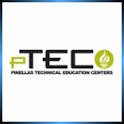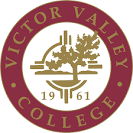What do they do?
Inspect buildings to detect fire hazards and enforce local ordinances and state laws, or investigate and gather facts to determine cause of fires and explosions.
Also known as:
Arson and Bomb Investigator, Arson Investigator, Canine Handler (K9 Handler), Fire and Explosion Investigator, Fire Code Inspector, Fire Inspector, Fire Investigator, Fire Official, Fire Prevention Inspector, Fire Prevention Officer, Fire Prevention Specialist, Fire Protection Specialist, Fire Safety Inspector, Fire Safety Specialist, Inspector
-
2.2%
Change
Ranks #13 in job growth rate40Job Openings
Ranks #8 in net job growth
Looking for colleges that offer a specific major? Use the College Match Tool to find your best-matched schools and discover your estimated Net Price!
- Some college, no degree (29%)
- High school diploma equivalent (24%)
- Bachelor's degree (19%)
- Associate's degree (17%)
- Master's degree (5%)
- Less than high school diploma (3%)
- Doctorate or Professional Degree (2%)
People in this career often have these skills:
- Active Listening - Giving full attention to what other people are saying, taking time to understand the points being made, asking questions as appropriate, and not interrupting at inappropriate times.
- Writing - Communicating effectively in writing as appropriate for the needs of the audience.
- Speaking - Talking to others to convey information effectively.
- Critical Thinking - Using logic and reasoning to identify the strengths and weaknesses of alternative solutions, conclusions, or approaches to problems.
- Reading Comprehension - Understanding written sentences and paragraphs in work-related documents.
- Social Perceptiveness - Being aware of others' reactions and understanding why they react as they do.
People in this career often know a lot about:
- Public Safety and Security - Knowledge of relevant equipment, policies, procedures, and strategies to promote effective local, state, or national security operations for the protection of people, data, property, and institutions.
- Customer and Personal Service - Knowledge of principles and processes for providing customer and personal services. This includes customer needs assessment, meeting quality standards for services, and evaluation of customer satisfaction.
- Building and Construction - Knowledge of materials, methods, and the tools involved in the construction or repair of houses, buildings, or other structures such as highways and roads.
- Law and Government - Knowledge of laws, legal codes, court procedures, precedents, government regulations, executive orders, agency rules, and the democratic political process.
- Education and Training - Knowledge of principles and methods for curriculum and training design, teaching and instruction for individuals and groups, and the measurement of training effects.
- English Language - Knowledge of the structure and content of the English language including the meaning and spelling of words, rules of composition, and grammar.
People in this career often have talent in:
- Problem Sensitivity - The ability to tell when something is wrong or is likely to go wrong. It does not involve solving the problem, only recognizing that there is a problem.
- Oral Comprehension - The ability to listen to and understand information and ideas presented through spoken words and sentences.
- Written Comprehension - The ability to read and understand information and ideas presented in writing.
- Written Expression - The ability to communicate information and ideas in writing so others will understand.
- Oral Expression - The ability to communicate information and ideas in speaking so others will understand.
- Deductive Reasoning - The ability to apply general rules to specific problems to produce answers that make sense.
- Inductive Reasoning - The ability to combine pieces of information to form general rules or conclusions (includes finding a relationship among seemingly unrelated events).
- Information Ordering - The ability to arrange things or actions in a certain order or pattern according to a specific rule or set of rules (e.g., patterns of numbers, letters, words, pictures, mathematical operations).
- Near Vision - The ability to see details at close range (within a few feet of the observer).
- Category Flexibility - The ability to generate or use different sets of rules for combining or grouping things in different ways.
- Flexibility of Closure - The ability to identify or detect a known pattern (a figure, object, word, or sound) that is hidden in other distracting material.
- Selective Attention - The ability to concentrate on a task over a period of time without being distracted.
- Speech Recognition - The ability to identify and understand the speech of another person.
- Speech Clarity - The ability to speak clearly so others can understand you.
People in this career often do these activities:
- Record information about suspects or criminals.
- Prepare investigation or incident reports.
- Testify at legal or legislative proceedings.
- Process forensic or legal evidence in accordance with procedures.
- Inspect equipment to ensure safety or proper functioning.
- Analyze crime scene evidence.
- Interview people to gather information about criminal activities.
- Record crime or accident scene evidence with video or still cameras.
- Inspect facilities to ensure compliance with fire regulations.
- Examine debris to obtain information about causes of fires.
- Educate the public about fire safety or prevention.
- Inspect facilities to ensure compliance with security or safety regulations.
- Issue permits or other legal documents.
- Write operational reports.
- Investigate crimes committed within organizations.
- Identify actions needed to bring properties or facilities into compliance with regulations.
- Inform others about laws or regulations.
- Develop fire safety or prevention programs or plans.
- Collaborate with law enforcement or security agencies to respond to incidents.
- Attend training to learn new skills or update knowledge.
- Review documents or materials for compliance with policies or regulations.
- Examine crime scenes to obtain evidence.
- Train personnel to enhance job skills.
- Train personnel in technical or scientific procedures.
- Maintain fire fighting tools or equipment.
- Provide safety training.
- Evaluate employee performance.
- Train employees in proper work procedures.
- Direct fire fighting or prevention activities.
- Recommend improvements to increase safety or reduce risks.
This page includes data from:

 Occupation statistics: USDOL U.S. Bureau of Labor Statistics Occupational Employment Statistics
Occupation statistics: USDOL U.S. Bureau of Labor Statistics Occupational Employment Statistics
 Videos: CareerOneStop, USDOL/ETA and the Minnesota Department of Employment & Economic Development
Videos: CareerOneStop, USDOL/ETA and the Minnesota Department of Employment & Economic Development





